Aggies Become Business Owners As Part Of Visualization Capstone Course
For the hardworking students in Texas A&M University’s visualization program, the opportunities are nearly limitless. Nobody knows that better than Kaitlyn Derheim and Anna Keller, who will graduate this week having already launched their own businesses.
The two Aggie entrepreneurs brought their ideas to life as part of the visualization senior capstone course, a relatively recent addition to the program in which students pour everything they’ve learned into one thoroughly planned and researched final project. Capstone instructor Barbara Klein — an instructional associate professor at A&M’s College of Performance, Visualization and Fine Arts — says these projects are as varied as the students who produce them, as each brings a unique skill set and perspective into the course.

“The product can be anything from a 3D rendering to website development. It’s all over the board,” Klein said. “Each student is doing a capstone that will propel their personal growth or give them a great piece for their demo reel.”
Among the 70-plus projects produced by students in this year’s capstone course, standouts include detailed digital illustrations, game design tools and 3D modeling work — all of which helped prepare their creators for a bright future in their chosen fields.
Derheim and Keller decided to explore a slightly different path, blazing a new trail for Viz students interested in entrepreneurship. Both used their graphic design and marketing skills to build their own e-commerce stores from the ground up.
Today, Derheim’s twelfth and co. boutique sells stylish and affordable clothes with an Aggie-inspired flair: “I’ve wanted to do this for about six years,” she explained. “I went to Barbara our junior year and she said, ‘I think it would be great.’ It’s targeted toward Aggie fans, but really I wanted to make somewhere where anyone and everyone can shop.”
Meanwhile, Keller sells prints of her own original artwork at Shop Keller Designs: “I started out selling my art on Instagram and Etsy, and then this semester gave me the time and the resources to actually put a lot of focus on it and turn it into a real company,” she said.
According to Klein, this is the first time the capstone course was used to launch a fully fledged business venture. She says art entrepreneurism is growing thanks to a shift in business toward consumer sales.
“The capstone course allows students personal growth and experimentation, which has propelled these businesses to develop,” Klein said. “While the capstone course does not ‘require’ the business to be legitimized, the students felt they had enough knowledge and support to proceed.
“About a third of the way through their projects, Anna and Kaitlyn said, ‘We’re going to make this real,’” she said. “I believe they are the first of many.”
Klein quickly connected them with other A&M faculty members, including Mays Business School professor Dr. Bridgette Chambers. These mentors helped guide the students as they crafted their business plans and filed all the appropriate paperwork.
“We’re not business majors, so we kind of had to learn things as we went,” Derheim said.

“That’s sort of a threshold you cross,” Keller said. “You have to take a really big step from having the idea to actually executing it.”
With graduation approaching, Derheim and Keller are both looking for full-time jobs in the Dallas area. Eventually though, they plan to work for themselves. Both said they are thrilled to be leaving Texas A&M with a firm entrepreneurial foundation: “I just really wanted to start laying the groundwork for that now,” Keller said.
As for Derheim, she won’t be saying goodbye to Aggieland just yet — she plans to open twelfth and co.’s first physical storefront in Bryan-College Station by 2025.
Klein said these initial forays into the business world represent a new and exciting direction for the visualization program. Next fall, she’ll be teaching a new class on entrepreneurship specifically designed for creative students, helping the program’s talented artists and designers explore new opportunities to profit from their work. She has spent years mentoring startups through the former Startup Aggieland and the new Design Spark Innovation Center. She hopes to bring some of that knowledge and enthusiasm directly to visualization and art students.
“For artists, the word entrepreneur is typically something we shy away from. But there are more and more people interested in monetizing their art,” Klein said, noting that even freelancers need to know how to keep proper records and report their earnings. “If nothing else, I would really like to see at least 20 percent of our visualization students coming out of here with strong business understanding.”
Derheim and Keller have already agreed to appear as guest speakers for the new class. Perhaps the most important piece of advice they hope to impart is that Viz students should never be afraid to try something new. As long as they’re willing to put in the effort, they said, students can trust that their instructors and classmates will help give them the tools and encouragement they need to pursue whatever dreams they have.
“Take a step out of the box because you can really do anything,” Derheim said. “Do something you haven’t seen done before. They’ll support you through everything.”









